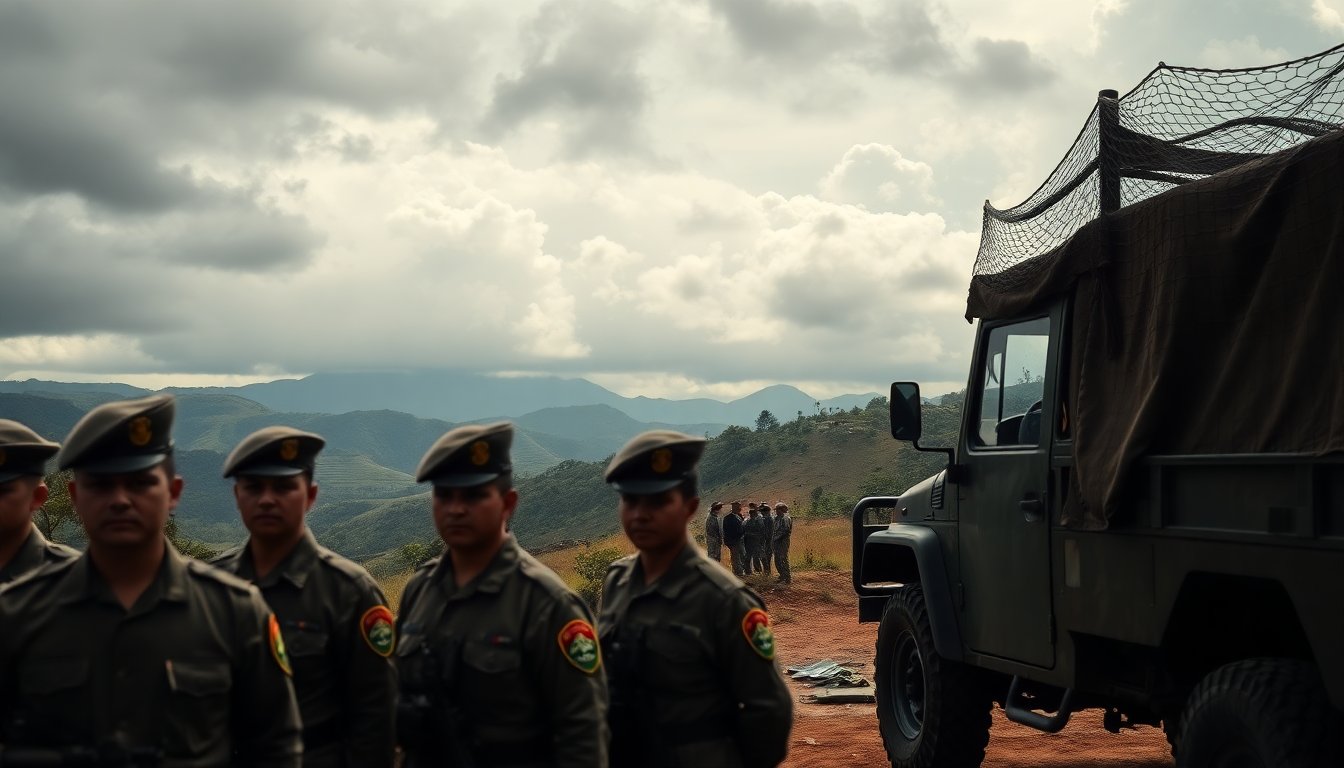Table of Contents
“`html
In a significant development, Colombia’s government has launched an investigation into potential connections between military officials and narcotics traffickers. This inquiry was triggered by alarming reports from a local media outlet, which detailed claims that army leaders may have facilitated arms supplies to a guerrilla faction. Such allegations pose serious implications for national security and the integrity of military operations in the country.
The inquiry comes amid ongoing efforts by the Colombian military to combat drug trafficking, a persistent issue that has plagued the nation for decades. Recent operations have highlighted both successes and challenges in eradicating drug networks. However, these allegations raise concerns about the extent of corruption within military ranks and the potential for collusion with criminal organizations.
Recent military operations against drug trafficking
Colombia’s National Army successfully dismantled a significant narcotics trafficking route that was reportedly operational from the border with Venezuela to European and African markets. This operation, carried out by the troops of the 28th Brigade, resulted in the seizure of a staggering 813 kilograms of marijuana in La Primavera, located in the Vichada department.
According to Colonel Roberto Contreras Félix, the commander of the 28th Brigade, this successful operation was part of the strategic initiative known as Plan Estratégico Conjunto Ayacucho Plus. In addition to the marijuana, valued at approximately 12.3 billion Colombian pesos, two individuals were apprehended during the operation.
Details of the trafficking network dismantled
The operation revealed a sophisticated criminal enterprise that utilized a collection point in La Defensa, Vichada, for the transnational transport of illegal substances. Reports indicate that this network was directly linked to the residual organized armed group (GAO-r), specifically the 53rd Structure led by the notorious alias Édison Romaña, who maintains significant criminal influence in this area.
Colonel Contreras emphasized that the successful disruption of this trafficking corridor directly undermines the logistical and financial capabilities of the criminal organization. By preventing the movement of a high-value shipment, the operation dealt a substantial blow to their illegal activities. The operation also resulted in the seizure of 75 million pesos in cash, three vehicles, a motorized boat, communication equipment, and various tools used for transporting drugs.
Broader implications for security and governance
As Colombia grapples with the ramifications of these allegations and recent military successes, the government faces mounting pressure to address systemic corruption. The military’s involvement in drug trafficking networks not only jeopardizes national security but also undermines public trust in governmental institutions.
On the same day as the successful operation against the trafficking ring, the Colombian military also reported the capture of five suspected members of the FARC dissidents in Guaviare and Amazonas departments. This operation led to the discovery of significant weapon caches, including rifles, ammunition, and various military-grade equipment, suggesting a well-armed and organized insurgent presence in the region.
Actions taken against insurgent groups
In response to ongoing threats, the Colombian Air Force apprehended a key figure, Óscar Estiven Guerrero Rivera, alias Junior, who was identified as responsible for the security of guerrilla leaders in the area. During this operation, authorities confiscated a substantial amount of weaponry and ammunition, further illustrating the challenges that Colombian forces face in their fight against armed groups.
In a separate incident in the Amazonas region, military personnel intercepted a group traveling by boat, resulting in the arrest of four additional suspects and the recovery of over 27 million pesos in cash, along with a large quantity of marijuana. These operations underscore the multifaceted nature of Colombia’s battle against drug trafficking and illegal armed groups.
As the investigation into military ties to drug trafficking unfolds, it remains crucial for the Colombian government to restore faith in its military and law enforcement institutions. Continued collaboration among various branches of the armed forces and law enforcement agencies will be vital in the ongoing struggle to eliminate drug trafficking and its associated violence.
“`


